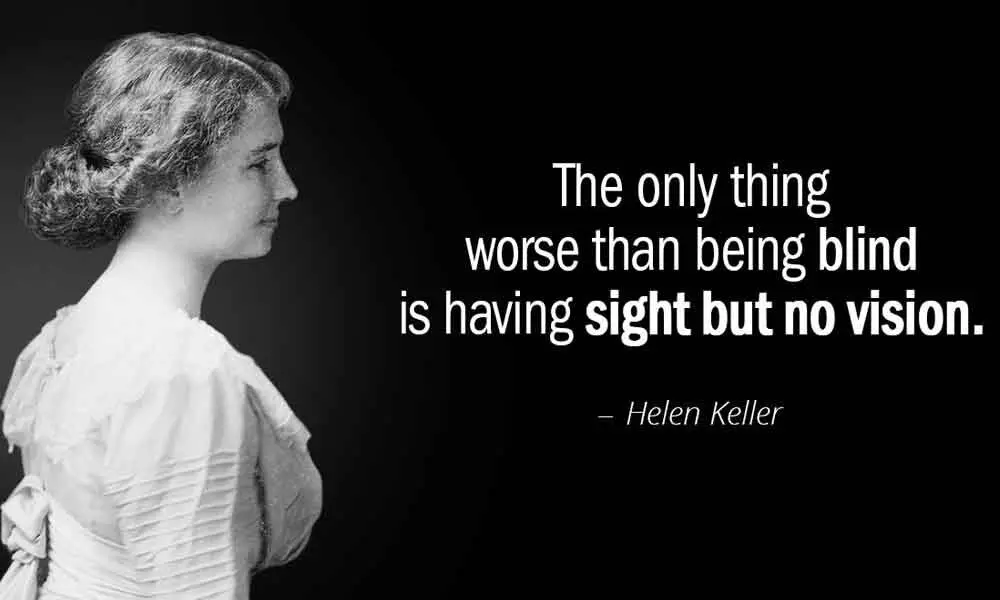Blindness no bar to bright future

Blindness no bar to bright future
Three youngsters prove lack of eyesight doesn't handicap them, and raise the bar for their normal peers. Armed with willpower and determination, the students from Devnar Foundation cracked the tough Common Law Admission Test (CLAT) for admission to the national law universities, and proved naysayers wrong
Their backgrounds are similar. All are from poor families. Their parents are farmers and belong to villages near Hyderabad. They went to the same school – The Devnar School for the Blind and Sai Junior College run by Devnar Foundation. There is one more similarity – all three have a strong desire to make it big and love to prove their detractors wrong. Meet Madipelly Rithish, 20, M Abhishek, 22, and M Soumya, 18.
Clearing the Common Law Admission Test (CLAT) for admission to the National Law Universities (NLU) in India is a dream for many a student and so was the case with these students. How and what went into the preparation, we asked Soumya who plans to join the National Law University, Jodhpur.
Apart from understanding legal terms, keeping abreast of general knowledge is a must. I made it a point to listen and read extensively - M Abhishek
"I started preparing from 11th standard thanks to the mentorship from IDIA. Studying for 10 hours a day and listening to audio tapes helped a great deal," said the girl from Mahbubabad. She adds, "My father is not supportive, but my mother is. I want to become a corporate lawyer."
In the case of M Abhishek, his journey is inspired by his idol Virat Kohli. He was not blind by birth but kept losing eyesight gradually and by 2012 became completely blind. He attributes his willpower and determination to Virat.
Normally people scroll, we use the arrows and once it points to a particular article, we can listen
- Madipelly Rithish
He says, "Virat Kohli lost his father but turned up for a match and won it for his team. It was so inspiring. Ever since, I have been his most ardent fan. I take a lot of inspiration from him." He adds, "Dr Saibaba Goud and Jyoti madam have been a pillar of strength and Pooja Bharadwaj from NALSAR University who taught us for the CLAT exam is another person who I am indebted."
Today, the students are happy and eager to enter law schools but the journey has been difficult. "I wrote 50 mock tests and listened to thousands of hours of audio tapes," says the boy from Koriviched village in Vikarabad. As for Madipelly Rithish, who is visually impaired by birth, life has not been easy either.
He says, "My aim is to become a civil servant and the knowledge of law would help immensely. I come from Jagtial and my parents are simple people. They still do not understand what it means to crack a national eligibility test. I need to go and make a name for myself and better the lives of many others."
My father is not supportive, but my mother is. I want to become a corporate lawyer - M Soumya
Dr Saibaba Goud, founder chairman, Devnar Foundation for the Blind, says, "These students have been with us since childhood. It is so heartening to see them do well. We are also grateful to IDIA for helping students crack the difficult exam."
Increasing Diversity by Increasing Access (IDIA) is a pan-India movement to train underprivileged students and help transform them into leading lawyers and community advocates.
It also provides a scholarship to these students that comprise financial support, training and mentorship among other things. Soumya says, "We would not have been successful if not for the weekly classes that students – Akansha, Harshita Gupta and others from NALSAR University – took over the years."
How they prepared
♦ All visually impaired students rely extensively on Non Visual Desktop Access, in other words NVDA, a free, open source screen reader for the blind and vision impaired. Rithish says, "Normally people scroll, we use the arrows and once it points to a particular article, we can listen."
♦ Hundreds of hours were spent by the students listening to the text on various issues ranging from politics to sport. For general knowledge, GK Today and Study IQ is what they relied on. Abhishek says, "Apart from understanding legal terms, keeping abreast of general knowledge is a must. I made it a point to listen and read extensively."
♦ Reading Comprehension is something that students have an advantage feels Abhishek. "We are good listeners and it is all about understanding the passage well. Mock tests really help." "I wrote 50 mock tests and listened to thousands of hours of audio tapes," adds one of them








